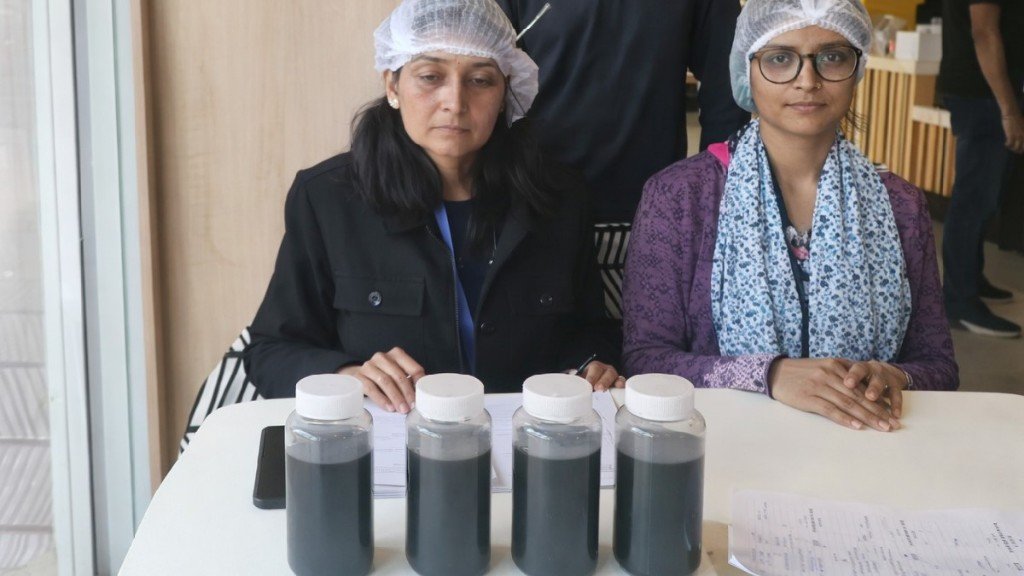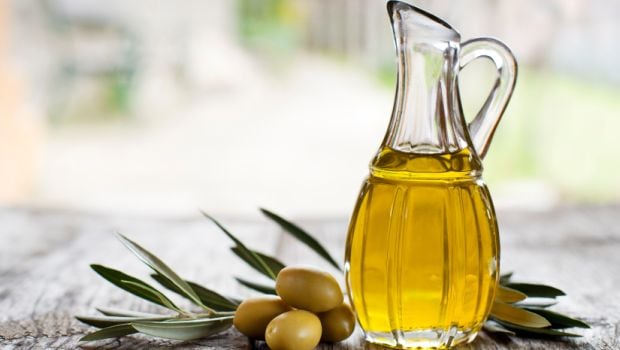Olive oil is being touted as new superfood because of type of health fat it contains called monounsaturated fatty acids (MUFAs) that are known to be really good for your heart. But there’s a growing debate about the kind of olive oil you should be using. There are several types available such as refined olive oil, pomace olive oil, virgin olive oil and of course the extra virgin olive oil. All olive oils are not created equal. These can be differentiated from each other on the basis of their nutritional value, taste and method of processing. Here, we’d like to specifically talk about the extra virgin sort which is considered to be top quality.Extra-virgin olive oil is a type of oil that is extracted by simply crushing the olives. In other cases, the oil may be subjected to processing with the use of chemicals. You can differentiate between the two just by looking at them. Extra-virgin olive oil has a darker color, while the regular olive oil is lighter and brighter. So, what makes extra-virgin olive oil healthier than the regular one? It has fewer chemicals and free radicals and is higher in antioxidants than olive oil.A group of researchers from the University of Chile have given us another reason to prefer extra virgin olive oil. According to their study, published in the journal Lipids in Health and Disease, a compound commonly found in extra-virgin olive oil can significantly reduce the symptoms of insulin resistance and non-alcoholic fatty liver disease – which are the negative effects of consuming a high-fat diet regularly. This compound has been identified as Hydroxytyrosol - a polyphenol which is known to have amazing antioxidant properties and may play an important role in making it healthy.
(Also read: Incredible Benefits of Olive Oil: Why it is Good for You)

The study was conducted on mice that were fed a high-fat diet. The team fed four groups of 12-14 mice on either a high-fat diet (60 per cent fat) or a control diet (10 per cent fat), with or without supplementation of 5 mg hydroxytyrosol per kg body weight, administered orally, for a 12 week period.
After the stipulated period, it was seen that adding a relatively low dose of hydroxytyrosol to the diet was able to reverse oxidative stress which is linked to fatty liver disease. It was able to reduce liver enzymes that are linked to an imbalance in the fatty acid composition of the liver, brain and heart as well as increase their activity. Moreover, hydroxytyrosol also lowered the increase in levels of low-density lipoprotein or the bad cholesterol.Extra-virgin olive oil is unrefined and the highest quality of olive oil that you can buy. There are many specific standards that the oil needs to meet for it to be labelled as 'extra-virgin'. Therefore, it is higher priced than the others.
(Also read: Incredible Benefits of Olive Oil: Why it is Good for You)

The study was conducted on mice that were fed a high-fat diet. The team fed four groups of 12-14 mice on either a high-fat diet (60 per cent fat) or a control diet (10 per cent fat), with or without supplementation of 5 mg hydroxytyrosol per kg body weight, administered orally, for a 12 week period.
After the stipulated period, it was seen that adding a relatively low dose of hydroxytyrosol to the diet was able to reverse oxidative stress which is linked to fatty liver disease. It was able to reduce liver enzymes that are linked to an imbalance in the fatty acid composition of the liver, brain and heart as well as increase their activity. Moreover, hydroxytyrosol also lowered the increase in levels of low-density lipoprotein or the bad cholesterol.Extra-virgin olive oil is unrefined and the highest quality of olive oil that you can buy. There are many specific standards that the oil needs to meet for it to be labelled as 'extra-virgin'. Therefore, it is higher priced than the others.
Advertisement
For the latest food news, health tips and recipes, like us on Facebook or follow us on Twitter and YouTube.
Tags:










